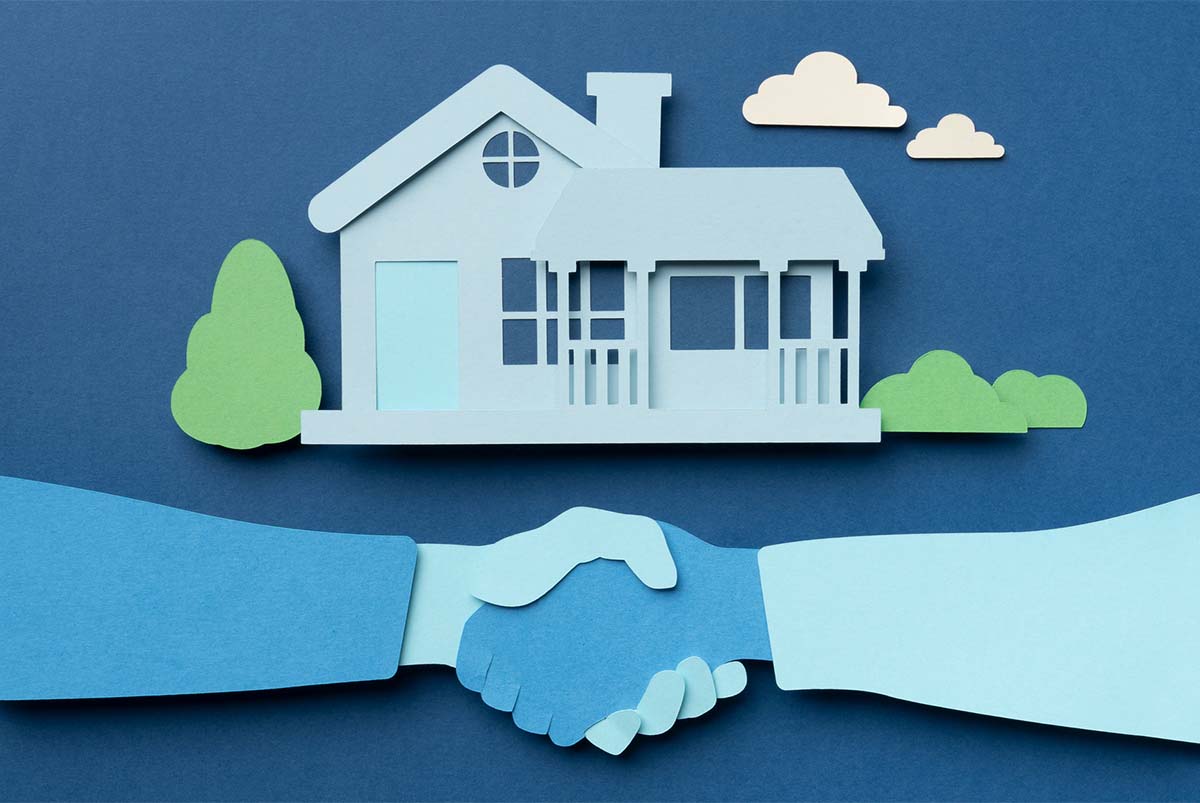Explore your mortgage options
When you need money from a lender, you can get one of two loan types: secured and unsecured. A secured loan uses a pledge of collateral and an unsecured loan does not.
When using collateral to secure a loan, you run the risk of losing the asset if you cannot repay the loan. If you default on the loan, the lender can collect and sell the asset to recoup all or a portion of the debt.
If you pay the loan in full, the lender no longer has a claim to the collateral used to secure the loan.
This article will help you understand what collateral is with examples of how it is used in secured loans.
Need Cash?
Applying for a personal loan has never been easier. Get the cash you need with competitive terms from Rocket LoansSM.
Checking your options won’t affect your credit score.
What Is the Definition of Collateral?
Collateral is an asset pledged to a lender as security for a loan by the borrower.
Collateral can be:
- Gold
- Properties, including real estate
- Stocks
- Bonds
- Savings accounts
- Art
- Cryptocurrency
- Other items of value
How Does Collateral Work?
The way a lender handles collateral may vary state by state and by loan type, such as mortgages, auto loans or other secured loans. When a borrower offers collateral for a loan, the lender has a legal interest in the asset.
For example, if you take out a car loan, the car is collateral for the loan. The lender places a lien on the loan until it’s paid off. If you make all your monthly payments and pay off the loan entirely, the lender will remove the lien on the car and you’ll own it outright.
However, if you fall behind on your car payments, the lender has the right to take back the car to cover the remaining loan balance.
With mortgages, lenders use the house being purchased as collateral. If you miss payments for 120 days, the house could become the lender’s asset through foreclosure and be sold to repay the debt. Some loan types, like personal or collateralized business loans, help borrowers acquire better interest rates and repayment terms. That’s because the lender views the loan as a lower risk.
What can I use as collateral for a loan?
The best types of collateral are items of value that are easy to buy, sell or trade.
Examples of collateral include:
- Financial: Assets including savings bonds, cash, savings, CDs, stocks, income, investment accounts, inheritance and cryptocurrency can be used as collateral for a personal or business loan.
- Real estate: Properties you own free and clear of liens such as boats, cars and other properties are acceptable forms of collateral for properties and real estate investments.
- Inventory: Jewelry, art or other items of value such as business equipment or machinery may count as collateral for personal loans and business loans.
The type of collateral you can use for a loan often depends on what the lender specializes in and what you intend to use the money for. For example, a boat lender may not accept your art as collateral for a boat loan. But you might be able to use your art collection as collateral with a private lender that specializes in art-backed loans.
Which Types of Loans Require Collateral?
All secured loans require collateral. This allows lenders to provide borrowers with better interest rates and repayment terms.
The following secured loans often require collateral:
- Mortgage loans
- Car loans
- Auto equity loan
- Secured credit cards
- Home equity loans
- Home equity line of credit (HELOC)
Here’s a rundown of how each type of secured loan works regarding collateral.
Mortgage loans
Mortgage loans are a type of secured loan that uses the house being financed as collateral. If something happens where the buyer cannot continue to make their mortgage payments, the lender can take control of the borrower’s property to sell it and repay the debt.
Mortgage loans are low risk to lenders since the loan is backed by the property you are purchasing. Mortgages help make home ownership more accessible, since most people don’t have cash to fully cover the purchase of a home.
Car loans
Most auto lenders use the car being financed as collateral on the debt. However, in some cases, where in-house financing is available, the dealership may accept other forms of collateral such as motorcycles, mobile homes or boats.
Using the financed vehicle as collateral allows auto loan lenders to offer financing incentives such as lower interest rates and longer repayment terms, which benefit the borrower.
Private lenders, credit unions and brokers may allow other forms of collateral when securing an auto loan.
Secured credit cards
Most major banks and financial institutions offer secured credit cards that use cash as collateral. When approved, your deposit acts as your credit limit.
Lenders consider secured credit cards low risk because the borrower cannot spend above the credit limit. Secured credit cards help borrowers with poor credit history to build credit. They are easier to qualify for than other loan types.
Home equity loans
Home equity loans are low risk to the lender because they use the home’s equity as collateral. The lender pays the borrower in a lump sum to be repaid over time in monthly installments at a fixed interest rate. The loan cannot be more than 80% of the equity in the home.
Borrowers should exercise caution when taking out a home equity loan. Changes in the real estate market can lower the home’s value. If this happens, the owner may owe more than the house is worth.
HELOCs
A home equity line of credit (HELOC) is a low-risk secured loan because the home is used as collateral. A secured line of credit allows borrowers to use up to 80% of equity of the home to withdraw money.
HELOCs can be risky. When the withdrawal period ends, and the variable interest rate begins, it can be hard to predict the monthly repayment amount. The homeowner will want to be careful not to overestimate their ability to repay to avoid defaulting on the loan.
If used wisely, HELOCs can help a homeowner make much-needed home repairs during the withdrawal period with more control over how quickly the debt is repaid.
Collateral Secures the Loan
If you need to borrow money and want a lower interest rate with better repayment terms, a secured loan can be the way to go. The lender will maintain an interest in your asset while you’re repaying the debt. But once the loan is paid in full, the lender removes their interest in the asset, and you own the property free and clear.
See What a Personal Loan Can Do for You
Our partners at Rocket LoansSM are ready to help.
Checking your options won’t affect your credit score.
The Short Version
- The way a lender handles collateral may vary state by state and by loan type, such as mortgages, auto loans or other secured loans
- Some loan types, such as personal loans or collateralized business loans can help the borrower acquire better interest rates and repayment terms
- The type of collateral you can use for a loan often depends on what the lender specializes in and what you intend to use the money for




